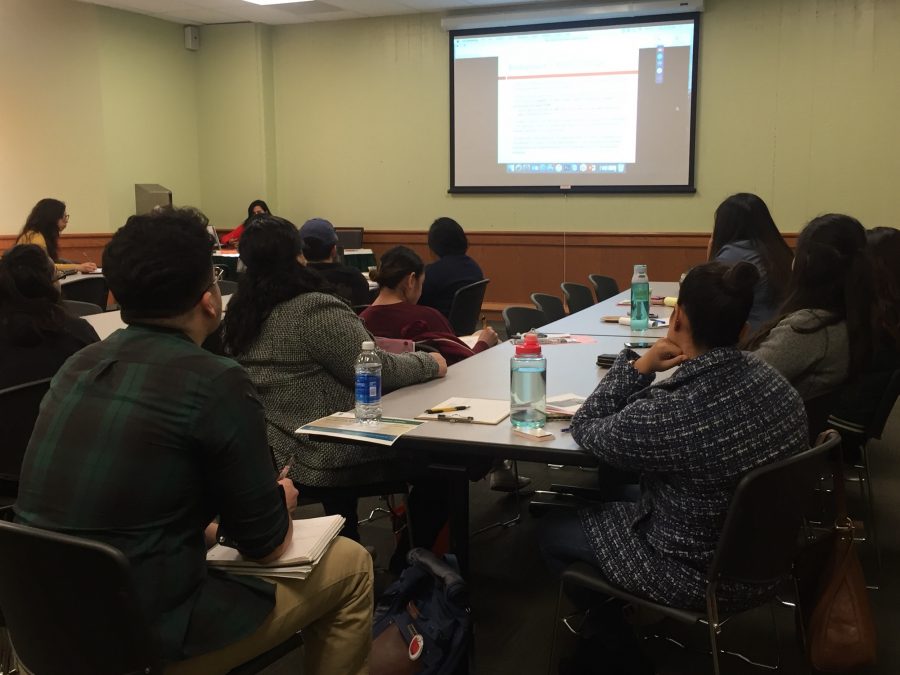The Immigrants Accessing Healthcare workshop on Feb. 28 aimed to inform undocumented students about health insurance and readily available health services.
Organized by Sacramento State’s Dreamer Resource Center and the National Immigration Law Center, the workshop was intended to provide up-to-date information to those left uncertain about the health care and immigration policies of President Donald Trump.
“Everyone needs to know that no matter who is president, everyone in the United States has certain basic rights,” said guest speaker Gabrielle Lessard over her webinar presentation.
Speaking an anticipated executive order from Trump that would limit health care benefits to undocumented families living in the U.S., Lessard reminded attendees that the order has not been signed yet, and there is a chance that it may not be signed at all.
Edith Gomez of the Health Education Council explained to attendees that because undocumented people are unsure about their status in the U.S., many have felt very hesitant to apply for health services.
Gomez highlighted programs that work with undocumented students and families living in the U.S. to find the best health services regardless of immigration status, such as Ventanilla de Salud.
Developed by the Mexican Ministry and Foreign Affairs and Department of Health, VDS is a program that provides information, counseling and referrals to local communities. The program has provided services for over 60,000 people in the Sacramento region and offers information visitors may need regarding health care.
“VDS is open to the public,” Gomez said. “Though it is a program of the Mexican government, you don’t have to be Mexican to be open to these safe services.”
While VDS is only one program providing information and services to those of undocumented status, undocumented students at Sacramento State may be wondering what services on they have access to campus.
Located in The Well, Student Health and Counseling is accessible to all students regardless of immigration status and can fill doctor’s prescriptions, provide mental health counseling and sexual health testing and information.
Though students pay for many of these services in their tuition fees, other specialty services carry additional fees.
In spite of the uncertainty regarding available health care services and unanswered questions about executive policies, these and other organizations still provide options.






























































































































